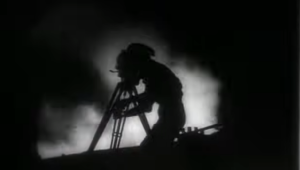It’s in the Genes
Scientists, who apparently never cease thinking of things that would never occur to me, have demonstrated that it is possible to store digital data in molecular form. As reported in Nature, a team of brainiacs stored the text of all 154 of Shakespeare’s sonnets, a photo of their institute’s building, and a copy of a paper by Watson and Crick, as DNA sequences.
Of course, as everyone knows, bits are bits, so digital audio can be stored as easily as any other bytes. To prove the point, the researchers also stored a 26-second audio clip of Martin Luther King’s “I have a dream” speech.
That’s right – the double helix is good for more than forming the basis for all known living organisms. It can also record Broadway show tunes. Moreover, the scientists lead by Nick Goldman (basing their experiment on earlier work by George Church), modestly noted that their technique could be scaled up to efficiently store all the data in the world. How efficient? CERN stores 90 petabytes on 100 massive tape drives; this technique could save the same data in 41 grams of DNA.
And, considering that we are still able to read the DNA of woolly mammoths frozen 60,000 years ago, the storage should be long-lived. Indeed, some future generation or alien species would easily recognize the unique content and identical lengths of the data sequences, in contrast to the repeating content and chaotic lengths of natural sequences.
Okay, it’s not cheap. Currently it would cost about $12,400 to record a megabyte and $220 to play it. But, costs are falling exponentially. High-end audio manufacturers, are you paying attention?
Who knew? Nucleic acids are as trusty as Compact Discs for storing audio. I am personally very excited about this development, and am starting research to determine if tinting the molecules with green Magic Marker will improve bass response.
Meanwhile, my question is this: can we use the technique to store music libraries inside our living tissue? How cool would that be? Moreover, if a man with rhythm music in his DNA made love to a woman with blues music in her DNA, would their daughter grow up to become an R&B singer? Rim-shot! Thank you, thank you very much. I’ll be here all week. Don’t forget to tip your waitress.
But, seriously, this is pretty cool. DNA sequences have been storing natural information for billions of years. It seems logical for us to use this most robust of storage media for manmade information.
- Log in or register to post comments






























































